LPSK Chair Achmadi: It Is No Longer the New Order
The Witness and Victim Protection (LPSK) Chair Achmadi explains the efforts to protect civil society amid widespread terror in the wake of the TNI Law revision protests.
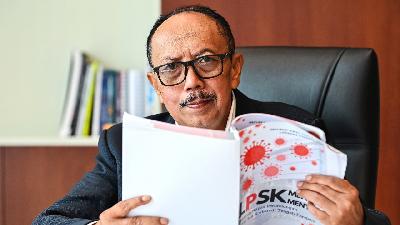
The Witness and Victim Protection (LPSK) Chair Achmadi explains the efforts to protect civil society amid widespread terror in the wake of the TNI Law revision protests.

Muhammad Kerry Adrianto’s lawyer, Reyno Yohannes Romein, denied that his client benefited from the mark-up of oil imports.
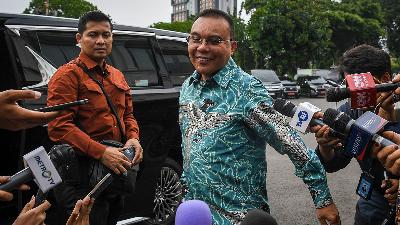
DPR Deputy Speaker Sufmi Dasco Ahmad share his perspectives on Danantara and the new SOEs Law.
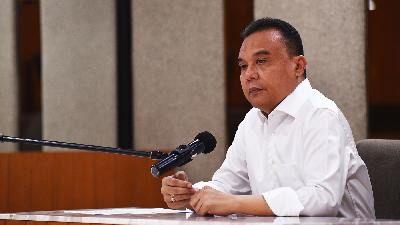
Gerindra Party Executive Chair Sufmi Dasco Ahmad responds to the negative assessment of the first 100 days of the Prabowo-Gibran administration in a special interview with Tempo.
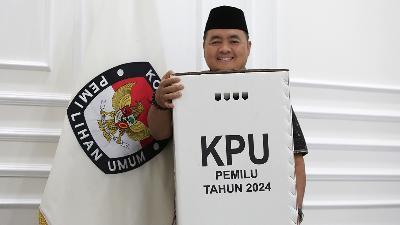
KPU Chair Mochammad Afifuddin on turbulence within his institution following the dismissal of Hasyim Asy’ari, and the Constitutional Court’s decision on the regional head elections.
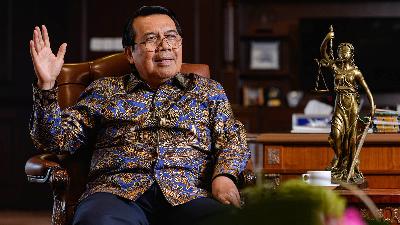
Supreme Court Chief Justice Muhammad Syarifuddin uses artificial intelligence to handle cases. Case brokers continue to be a threat.
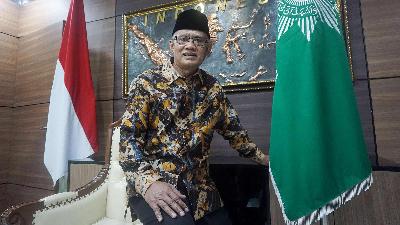
Muhammadiyah follows Nahdlatul Ulama’s step to accept mining concession offer from the government. Muhammadiyah General Chair Haedar Nashir explains about it.
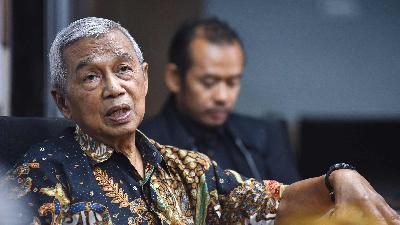
Muhammadiyah accepts the government’s mining concession offer. Many members are against it. Busyro Muqoddas, Chair of Muhammadiyah’s Law and Human Rights Council explains.

Muhammadiyah cadres and administrators are divided in their response to the mining concession. There are whispers from the government and the entrepreneurs.
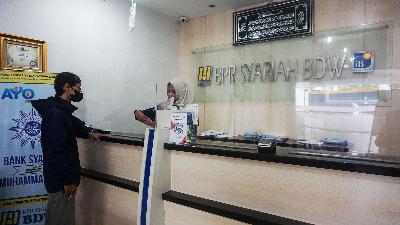
Muhammadiyah’s business networks cover various sectors, from education to financial services. It seeks to create a closed economic ecosystem.

Muhammadiyah withdrew trillions of rupiah from Bank Syariah Indonesia. It was the accumulation of various problems, from operational matters to appointment of commissioners.
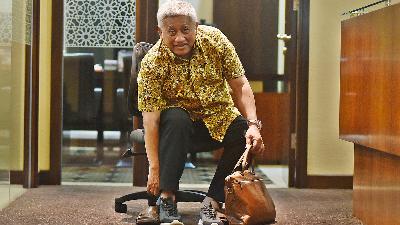
Mohammad Nuh, chairman of the Forum for Boards of Trustees of Legal Entity State Universities, explains the polemic over the single tuition fee (UKT).
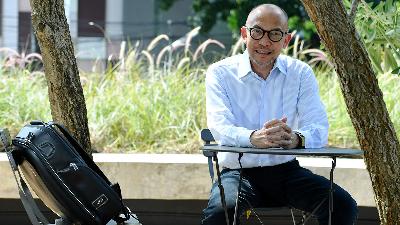
Economist Muhamad Chatib Basri explains the challenges facing the Indonesian economy.
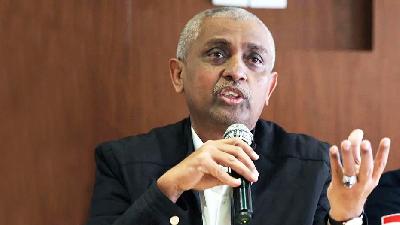
Surabaya lawyer Ahmad Riyadh denies entertaining a Supreme Court judge in a seafood restaurant. He is also implicated in Gazalba Saleh’s case.
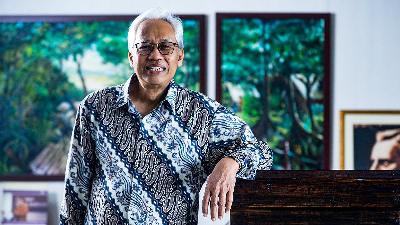
UIN Sunan Kalijaga professor Muhammad Amin Abdullah explains Islamic environmental jurisprudence in relation to climate change.

The number of Indonesian umrah minor pilgrimage travelers grows during the fasting month of Ramadan. The nation’s umrah economic potential has not been fully harnessed.
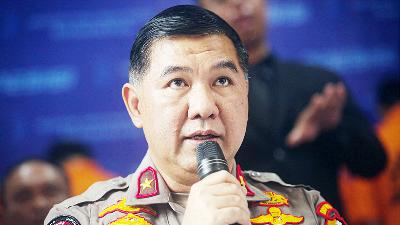
Interview with Chief of the RI Police Public Information Bureau Brigadier General Ahmad Ramadhan regarding neutrality of the police force.
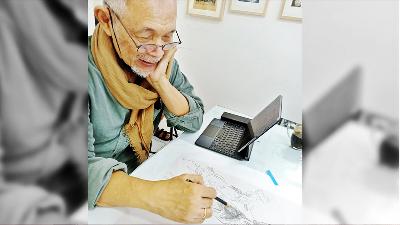
In the solo exhibition of Goenawan Mohamad, the drawings are honest and free. GM presents many solitary objects.
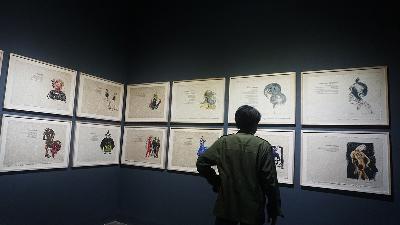
Goenawan Mohamad exhibits works depicting ghosts he encountered in a collective exhibition in Art Jog 2023.

Goenawan Mohamad’s gracious farewell from Sidelines.

The clarification of NasDem Party Deputy General Chair Ahmad Ali about deforestation in the nickel mining area in Sulawesi.

Maxime Rodinson is an atheist. But he is not one to shut himself off with arrogance as do the ‘new atheists’. He sees that “…Muhammad did really experience sensory phenomena translated into words and phrases and that he interpreted them as messages from the Supreme Being.”
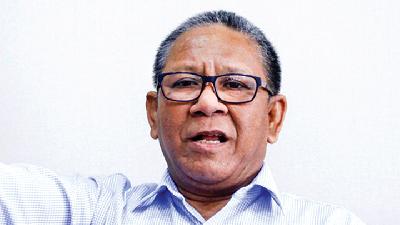
Mohammad Rohanudin, CEO of Radio Republik Indonesia (RRI), had fought to keep a 142.5- hectares land that was going to be taken away to be used as the location for the Indonesian International Islamic University (UIII).
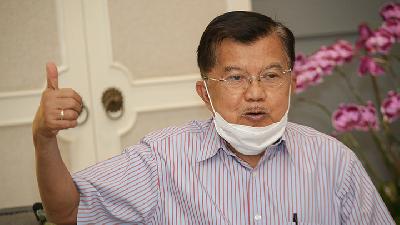
Although he is no longer chairman of the steering committee of the Indonesian International Islamic University (UIII), Muhammad Jusuf Kalla, still watches over the project intensely.
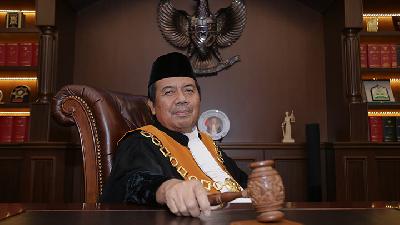
JUST like government institutions’ heads in other countries, Supreme Court’s Chief Justice Muhammad Syarifuddin does not know what it is like to work from home even as the Covid-19 pandemic rages on. He still goes to work and has familiarized himself with video conferencing from a designated cubicle at the corner of his office.
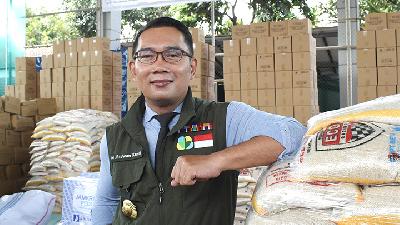
West Java Governor Mochamad Ridwan Kamil has ordered large-scale social restrictions—or PSBB as widely known—across the entire West Java region starting May 6 following the successful implementation of the same measures in Bogor-Depok-Bekasi and Greater Bandung.

Rising number of Covid-19 patients reminds Mohammad Syahril of the time the pandemic began to unfold last January. He had just been appointed the chief executive officer of the Sulianti Saroso Infectious Diseases Hospital (RSPI) that time.
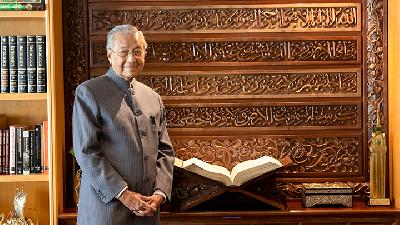
Mahatir Mohamad was to relinquish his position as Malaysia’s prime minister after the Asia-Pacific Economic Cooperation (APEC) forum scheduled to be held this November in Kuala Lumpur, paving the way for People’s Justice Party (PKR) President Anwar Ibrahim to fill the country’s top position.
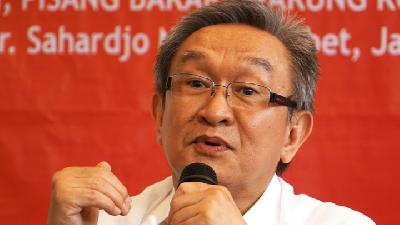
THE bribery case of Muara Enim Regent, Ahmad Yani, has dragged in the name of Corruption Eradication Commission (KPK) chair, Firli Bahuri, who at the time was Regional Police Chief of South Sumatera.
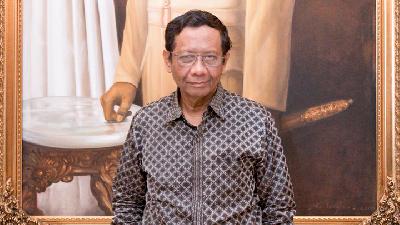
LAST Wednesday, October 23, was a long day for Mohammad Mahfud Md. He was at the Presidential Palace bright and early to be sworn in as the coordinating minister for political, legal and security affairs.
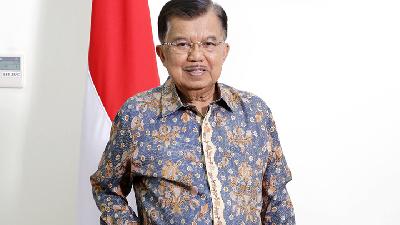
THERE is no such thing as a retirement preparation period (MPP) for Vice President Muhammad Jusuf Kalla. His workload has not ebbed even as his tenure is going to end in just two months. The 77-year- old native of Watapone, South Sulawesi is still occupied with meetings and working visits to various regions.
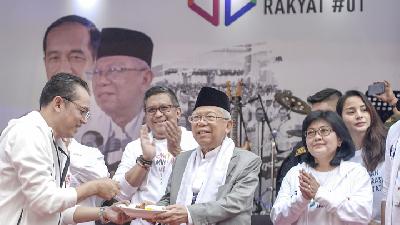
Ma’ruf Amin has not been a strong magnet for Muslim circles. Jokowi has taken it upon himself to approach Muhammadiyah voters.
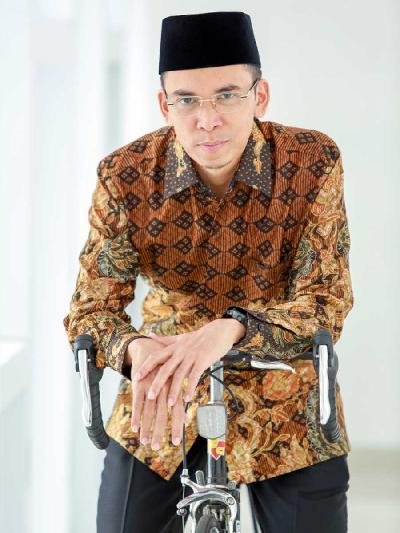
Among the many who support President Joko Widodo to run again in the 2019 presidential elections, one stands out for provoking controversy. He is Muhammad Zainul Majdi, Governor of West Nusa Tenggara.
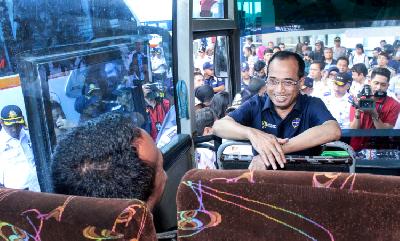
FOR Transportation Minister Budi Karya Sumadi, taking a leave during the Idul Fitri (end of fasting month) holiday is impossible.
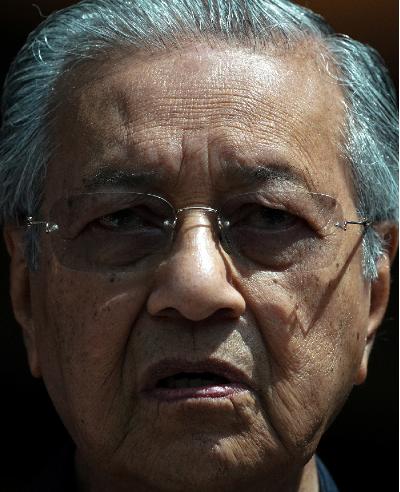
After resigning from his position as Prime Minister of Malaysia in 2003, Mahathir Mohamad wanted to enjoy his retirement.

Five years ago, Ahmad Heryawan promised to clean up the Citarum River-said to be the world's most toxic river-and turn its water into drinkable water.

Transportation Minister Budi Karya Sumadi has vowed to take tougher actions as the app-based online transportation regulation is still stuck in limbo since it was issued last year.

Colomadu, a former sugar mill in Karanganyar has been transformed into a concert hall, convention center and commercial area. This sparked outrage from several parties.

After testifying for Setya Novanto, who stands accused in a suspected corruption project involving electronic ID cards (e-KTP), Muhammad Nazaruddin quickly complained.

Muhammad Adhiyat joined Pengabdi Setan’s cast by accident. Although he plays the role of the devil incarnate, Muhammad is actually afraid of ghosts.

SETYA Novantos alleged involvement in the massive electronic ID card (e-KTP) corruption scandal troubles Vice President Muhammad Jusuf Kalla.

Rizieq Syihab, charged in a pornography offense, did not show up at his scheduled questioning at the Jakarta police headquarters on April 25. He said he wanted to travel to Mecca, Saudi Arabia, to perform the lesser pilgrimage (umrah). This Grand Imam of the Islam Defenders Front (FPI) promised he would be present for questioning upon returning from the Holy Land in mid-May. However, the post-Ramadan fasting month holiday has passed and he has yet to return to Indonesia.

Corruption Eradiation Commission (KPK) deputy chairman Laode Muhammad Syarif said that the the bribery case involving Patrialis was different from previous ones. The KPK's task force did not confiscate cash as evidence. They were only able to seize a voucher exchangeable for foreign currency, a draft of a material review court verdict, and a recording of a conversation. "This is an irregularity," said Syarif, when Tempo interviewed him at his office last week.
What did Basuki ask of Patrialis?

When he was still the inspector-general at the Ministry of Finance three months ago, Kiagus Ahmad Badaruddin, 59, was angered by a report on a sum of Rp3 billion that had been deposited into his wife's account. It shook him, particularly since he was being considered for the position of chairman of the Center for Financial Transactions Reporting and Analysis (PPATK).
That report spread to the Presidential Palace and to the finance ministry. Finance Minister Sri Mulyani, who recommended Badaruddin to be PPATK chief, took a deeper look at the report. "She asked me what the money was all about," recounted Badaraddin, or Badar as he is familiarly known.

When he was still the inspector-general at the Ministry of Finance three months ago, Kiagus Ahmad Badaruddin, 59, was angered by a report on a sum of Rp3 billion that had been deposited into his wife's account. It shook him, particularly since he was being considered for the position of chairman of the Center for Financial Transactions Reporting and Analysis (PPATK).
That report spread to the Presidential Palace and to the finance ministry. Finance Minister Sri Mulyani, who recommended Badaruddin to be PPATK chief, took a deeper look at the report. "She asked me what the money was all about," recounted Badaraddin, or Badar as he is familiarly known.

Corruption Eradiation Commission (KPK) deputy chairman Laode Muhammad Syarif said that the the bribery case involving Patrialis was different from previous ones. The KPK's task force did not confiscate cash as evidence. They were only able to seize a voucher exchangeable for foreign currency, a draft of a material review court verdict, and a recording of a conversation. "This is an irregularity," said Syarif, when Tempo interviewed him at his office last week.
What did Basuki ask of Patrialis?

Minister of Research, Technology and Higher Education Muhammad Nasir said it is possible there are people claiming to have a close connection with him and acting as 'brokers' in elections at several universities. The former rector of Semarang's Diponegoro University said if this is indeed happening, he does not know about it nor would he be able to prevent them from 'trading influences' with rector candidates. "That's normal, but I wish it did not happen," he told Tempo during an interview in his study on Thursday, two weeks ago.
The minister's vote, which accounts for 35 percent, is a decisive factor in elections.
Because state universities are funded by the state budget, a minister is entitled to select one of three candidates. We don't just appoint people. Their track records are important, and they must have a clear vision and mission.

THE Ramon Magsaysay Award Foundation named the philanthropic organization Dompet Dhuafa as one of the recipients of its renown award this year. The foundation based in Manila, the Philippines is convinced that Dompet Dhuafa's management of alms and donations constitutes a big contribution towards public service.
Ahmad Juwaini, who served as CEO of Dompet Dhuafa for the 2013-2016 period, said that the award was a sign of the world's appreciation for his organization's work.

TERESA was surprised when she arrived at Penglipuran. The Spanish tourist did not expect the village had an empty land called Karang Memadu for expelled residents who practice polygamy. Enjoying the cool atmosphere of the rural area, Teresa was amazed at the layout of the residents' settlement at 700 meters above the sea level. The bamboo arboretum as large as 45 hectares was another charm that attracted Teresa to visit.
Karang Memadu is a spread of empty land in the southern part of the village planted with banana, cocoa, coffee and bamboo. "It is very nice to have a place like this," said Teresa. Karang Memadu also left a deep impression on German tourists Andreas and Claudia. Andreas said Karang Memadu symbolized the harmonious relationship among the residents of Penglipuran. "One husband, yeah, is for one wife. Germany, like the European countries, in general, is also like this. It does not acknowledge polygamy," he said.

Disappointing US employment numbers is likely to delay the planned US dollar interest rate hike. Last week, Federal Reserve Chief Janet Yellen stressed uncertainties faced by the US economy, prompting analysts to project a delay in a US dollar interest rate hike to August or September of this year. Coming at the first day of the Ramadhan fasting month, it gave the rupiah and other regional currencies some breathing room, with the rupiah strengthening and stabilizing at Rp13,200 per US dollar. But Bank Indonesia has also been quite active in defending its currency, reflected by the drop in its exchange reserves to US$103.6 billion from US$107.7 billion a month ago. The question is whether this trend can be maintained and whether the central bank will move to stimulate the economy by further bringing down the rupiah's current 6.75 percent benchmark interest rate.
The month of Ramadhan always brings with it a positive boost to the economy as consumption rises. But this surge, if not managed well with sufficient food supplies, could also raise prices. Indeed, this is already happening. Inflation is always higher during Ramadhan, but it has a tendency to shoot far beyond Bank Indonesia's inflation target. Should this occur, it makes moving down the rupiah interest rate more difficult, even with a more stable currency.

The partnership between state oil and gas company Pertamina and Russian oil firm Rosneft in building the Tuban refinery in East Java seems to have been a tight competition between the ministries of state-owned enterprises Ministry (SOE) and that of energy and mineral resources (ESDM). Pertamina CEO Dwi Soetjipto asserted that Rosneft's win was in line with company procedures. "We have also reported it to our shareholders," he told Tempo reporters Agus Supriyanto and Ayu Prima Sandi at the Pertamina headquarters in Jakarta, last week.
Dwi denied reports that an outsider mediated the selection process. Alongsde Pertamina refinery director Rachmad Hardadi and spokesperson Wianda Pusponegoro, he clarified the selection process, including the geopolitical considerations for choosing Rosneft.

Supreme Court Chief Justice Muhammad Hatta Ali feels the current negative media reports about the court system are excessive and unjustified. "When it comes to reports about our justice system, they tend to be exaggerated," said Hatta during a recent interview.
The reputation of the Supreme Court was once again in question after the Corruption Eradication Commission (KPK) nabbed Central Jakarta Court Clerk Edy Nasution red-handed accepting a bribe from a businessman.

THE Best Halal Tourism and World's Best Halal Honeymoon awards at the World Halal Travel Summit last year prompted a number of regions around Indonesia to work on winning those awards. The interested provinces were Aceh and West Sumatra. The provincial administrations of these two provinces are now competing to develop halal (acceptable according to Islam) in their respective areas in the next three years. They are campaigning hard among tourism industry practitioners to develop this industry genre and allocating the necessary funding for the effort.
Lokot Ahmad Enda, who is assistant deputy director for the development of cultural tourism destinations at the tourism ministry, said in an interview that Indonesia has been late in developing halal tourism. In fact, the program was only seriously developed in Indonesia around 2012. "Even Thailand has been doing it for the last 15years and Malaysia started it 10 years ago," Lokot told Tempo English reporter Isma Savitri in an interview last April. Excerpts.

The detention of Samadikun Hartono should spur the authorities in Indonesia to finally uncover all the facts of the Indonesian Bank Restructuring Agency (IBRA) megascandal. Although Indonesia has had five presidential changes, the investigation into the IBRA case has resembled a traditional poco-poco dance: backwards and forwards on the spot.
Samadikun was detained by Chinese immigration officials in Shanghai on April 15. Officers were suspicious because the former chairman of the board of Bank Modern had travelled back and forth to China on a Vietnamese passport under different names. After 13 years on the run, Samadikun was brought back to Jakarta last Thursday to serve a four-year jail sentence.

The attention given to the police, in particular Counterterrorism Detachment 88 (Densus 88), over for the questionable death of Siyono, cannot be disassociated from the role of the Muhammadiyah. This religious organization founded by K.H. Ahmad Dahlan has been the driving force advocating justice for Siyono's family. But this has led to charges that Muhammadiyah is pro-terrorism.
Haedar Nashir, 58, chairman of Muhammadiyah's executive board, stated that support for Siyono's family was purely in the interest of humanity. "In addition to looking after humanitarian values, we also have an interest in seeing that the law is enforced," said Haedar.

Amid the threats of being blocked from operating, Grab finally agreed to work with the newly established Indonesian Car Rental Cooperative Association (PPRI) so that it could operate within the confines of local legislation. Last Wednesday, Minister for Cooperatives and Small and Medium-sized Enterprises Anak Agung Gede Ngurah Puspayoga granted the company the deed to the association. "We are acting on the government's advice," Grab Indonesia's Managing Director Ridzki Kramadibrata said at the cooperatives ministry. In an email to Tempo, he also pledged that the Malaysia-based company would adhere to all relevant legal frameworks.

Bangka Regent Tarmizi will not budge from his position that driving Ahmadis out of his region is key to restoring peace and stability. He also refused to take responsibility for their safety if they failed to do so. "We have asked them nicely to relocate," he said last Wednesday.
Tarmizi, previously the secretary of Bangka region, claimed that there were already four fatwas that branded Ahmadis as heretics. Their presence, he said, could "weaken Muslim conviction," adding that the local community would never accept them. "It's not the end of the world for them to move," he grumbled.

The expulsion of Ahmadiyah followers from Bangka has shown once again the weakness of the state when it comes to protecting minorities. It is even more unfortunate that local government officials were involved in the eviction. This means that the state supports and participates in acts of discrimination.
Last week, hundreds of Sri Menanti villagers at Sungai Liat in Bangka Induk regency asked Ahmadiyah followers to leave not just Bangka but Belitung province as well. Their mosque was sealed. They were ordered to convert to Sunni Islam. Instead of ordering these fanatics to be tolerant, Bangka Regency Secretary Ferry Inani called for the Ahmadiyah followers to repent. Bangka Regent Tarmizi Saat even gave them a deadline, telling them to leave Bangka by February 5.

Until today, it is fair to say that the government has never given any opportunity nor political recognition to fisherwomen. The bill on the protection and empowerment of fishermen, fish farming and salt mining currently drafted by the House of Representatives (DPR) is an opportunity to accomodate such a need. R. Narmoko Prasmadji said he would try to ensure that the bill contain clauses favoring fisherwomen's empowerment. "There should be legal and economic protection for fisherwomen," said Narmoko. Tempo English contributor Pujani Nadine Kamarwan interviewed him at his office in Jakarta two weeks ago. Excerpts:

THE problem of illegal Indonesian migrant workers in Malaysia is a very complex one, made even more complicated due to the alleged involvement of many government officials. Even so, there are plenty who feel that if the bureaucracy is managed well, including the issuance of permits by immigration offices, the government would be able to prevent the trafficking of these workers and the 'slavery' of Indonesians abroad.
In an interview with Tempo in his office last November, Maryoto Sumadi admitted to plenty of irregularities when it comes to the issuing passports in the provinces and at Indonesian consulates abroad. Maryoto said the predicament was a difficult one to manage because it involves many interested parties. "The motivation inevitably has to do with money," he said. Excerpts:

About a Woman is the last in a trilogy on character transformation by director Teddy Soeriaatmadja. The Lovely Man, his first film, tells the struggle of an Acehnese woman who wears a veil to find her father, who turns out to be a transvestite in Jakarta. His second film Something in the Way recounts a taxi driver's obsession with a neighbor who happens to be a commercial sex worker. Teddy rounds off his trilogy about intimate matters with the dramatic About a Woman.
In the course of the trilogy, we can also observe the maturing of his directing skills. Teddy now appears more at ease in the simple drama About a Woman. Directors in general have different foci and approaches. Some are centered on the scenario's structure, while the artistic value is obtained through the narrative and the dialog's rhythm. Others depend on their actors to convey the emotions within the storyline. While yet others prioritize the beauty of their visual images and give a strong emphasis to their camera work to create captivating visual renderings.

After the noon prayers, Irzal Rakhmadani, 24, packed his things in a rucksack and went out. Two items he never goes without are his stethoscope and sphygmometer. He would ride on his motorbike to the office of the World Wild Fund for Nature (WWF) in Palangkaraya, Central Kalimantan, three kilometers away. There, he would treat people suffering from the effects of forest fire smoke around Palangkaraya. In 2015, he treated some 1,000 patients.
In mid-September, Irzal and his colleagues visited a camp for workers who had been laid off by an oil palm company. Fifteen volunteers of Earth Hour Palangkaraya had gathered to help the smoke victims there. Irzal saw something that distressed him. About 300 people were crammed into a 5x15 meter barrack. Because there was not enough room, tarpaulin tents had been set up outside the barracks. People lived alongside chicken and their pet dogs.

A little over one year ago, author Goenawan Mohamad in righteous anger pointed out to the Goethe Institute in Jakarta that Indonesia had done nothing to prepare for the Frankfurt Book Fair. "You gave us five years' notice. It is now year four and nothing has been done. A new government will be in place, with no time to attend to a book fair, however important. So I suggest, with due respect, that the German ambassador offer this honorable opportunity to Malaysia instead," he said, shocking participants at the meeting. The tables were turned. Goenawan was offered the position to chair the national committee to the prestigious event.

Across East Java's Madura strait, spans the longest cable bridge in Indonesia, an iconic example of a cooperative infrastructure project between Indonesia and China. The bridge is a realization of a longstanding dream to link the islands of Java and Madura. "The vision to connect the major islands existed as far back as the 1960s," said Christine Susanna Tjhin, an observer of China's social and political issues, from the Center for Strategic & International Studies (CSIS).
The Suramadushort for Surabaya-Madurabridge, spans over 5.4 kilometers, its concrete structure expected to last 100 years. The Rp4.5 trillion bridge was built in 2003 by a consortium of Indonesian companies collaborating with the China Road and Bridge Corporation and the China Harbor Engineering Company. The 818-meter main bridge, imported from China, is supported by four 146-meter high pylons, while the remaining portion was built by local contractors.

According to the Global Financial Inclusion Index, Indonesia's position falls below 20 percent, lower than Malaysia (66 percent) and Thailand (77 percent). To improve conditions, the government recently amendended Law No. 1/2013 on micro-financing agencies (LKM) to give the marginalized people more access to financial services. The Financial Services Authority (OJK) was then given the mandate to formalize more than 630,000 LKM all over Indonesia so that they can comply with existing regulations.
Mohamad Ihsanuddin, however, admitted that this was not easy. "We must promote it and educate civil servants in the regencies to supervise and monitor the LKM," he said. The OJK is given until January 2016, exactly one year after the law took effect, to ensure that those micro-financing agencies have the proper licenses to run their businesses, a very challenging task for an agency that was set up only three years ago. Ihsan spoke to Tempo English reporter Amanda Siddharta at his office last week.

Mohamad Al-Arief has lived in Washington, D.C., USA, for the past 10 years, as a senior officer at the World Bank headquarters. Despite frequent travels to more than 50 countries, as part of his job, his heart remains in his home country, Indonesia. Arief, who is also president of the Indonesian Diaspora Network (IDN) Global, continuously thinks of ways he and other members of the Indonesian diaspora can contribute to the nation.
He figures one way would be to convene the hundreds of thousands of other Indonesians living overseas at the 3rd Congress of Indonesian Diaspora on August 12-14 in Jakarta. "We are garnering our collective efforts to discuss on how we can share our expertise and experience," he said.

The meeting between Java-based leaders of Muhammadiyah (the second largest Islamic organization in Indonesia) at the Hotel Malaka in Bandung was far from an ordinary halalbihalal-or Eid celebratory gathering.

The distribution of a revised Bill on Bank Indonesia at the House of Representatives' (DPR) Commission XI last June was a public shocker. A number Commission XI legislators claimed not to know anything about the revised law being drafted by Fadel Muhammad, as commission chairman. Some worry that the revised law will reduce the authority of both the Financial Services Authority (OJK) as well as the Finance Ministry. Tempo reporter Gustidha Budiartie spoke with Fadel by telephone last week, to clarify the background of the draft legislation.

WITH his hair combed neatly to the right, Muhammad Quraish Shihab looks different from how he looks on TV. And in his brown shirt, somehow bigger. "It's not me, its the TV camera that gets it wrong," the 71-year-old Quraish told Tempo at his home in South Jakarta.

There are many obstacles to becoming a research university, among them funding, which is not much and the fact that research has yet to become a culture of higher learning in this nation. To look into this subject further, Tempo reporters Erwin Zachri and Gabriel Titiyoga spoke with Research Technology and Higher Education Minister, Mohamad Nasir at his office last week.

The Sang Hyang Seri company was reported to have been responsible for a program to create paddy fields in Ketapang, West Kalimantan. But out of a targeted 100,000 hectares, only 100 hectares were cultivated. "Why was it reported as fictitious? We always submitted an accountability report," said Ahmad Yani, chief of Sang Hyang Seri's internal security unit, speaking to Tempo reporters Gustidha Budiartie and Ayu Prima Sandi at his office last Thursday.

With many people still suspecting Pertamina-through its new product Pertalite-wants to maintain its secretive ways, its marketing and trade director, Ahmad Bambang spoke to Tempo reporter Gustidha Budiartie to explain about it. The following Q&A was the result of a number of meetings, including a response by SMS last week.

Muhammad Said Didu, chairman of the National Smelter Development Team under the Energy and Mineral Resources Ministry spoke to Sadika Hamid and Syari Fani on smelter-related issues.

POLITICAL tension surged when Ahmad Syafii Maarif declared that the sole candidacy of Budi Gunawan as the national police chief was not the initiative of President Joko Widodo. The statement angered the police and politicians, including Megawati Soekarnoputri, chair of the Indonesian Democratic Party of Struggle (PDI-P).

QUITE a few critics have expressed their doubts about the capacity of Muhammad Prasetyo as attorney general. Based on his tenure as deputy attorney general for general crimes between 2005 and 2006, he was regarded as an average performer. Add to that, the fact that he later became a full-time politician.

Agriculture expert, Mochamad Hasjim Bintoro Djoefrie traces his interest in sago to a Japanese researcher from Okayama University who came to Indonesia during the 1980s to study about this commodity. Bintoro was asked to be his assistant. "Sago can't grow in Japan because it's a tropical plant," he said.

TO Dyah Kartika Rini Djoemadi, coordinator of Jokowi's Advanced Social Media Volunteers (Jasmev), the 2014 presidential election was a chance to prove themselves. Determined to totally focus on the task ahead, Kartika took a three-month leave from Spindoctors Indonesia, the political strategy and public policy consulting firm she founded, to devote all of her time to Jasmev. Not surprisingly, until the actual election day on July 9, DeeDeeas Kartika is better knowncould be found in the Jasmev war room in a building at Gondangdia, Central Jakarta.
There DeeDee, 34, coordinated the activities of 150 volunteers, who worked in three shifts. Each of them employed a laptop in their operations to ensure Joko Widodo was elected president. "I had to monitor the war room every day. Doing it part-time would not have been effective," she told Tempo in Jakarta two weeks ago.

During the corner-stone laying ceremony of the Bogor Institute of Agriculture (IPB) back in 1961, former President Sukarno requested that IPB produce as many agronomists and horticulturists as possible. "He knew the diversity of Indonesia's environment, and agronomists and plant breeders were needed everywhere in the country," said Muhamad Syukur, Professor of Agronomy and Horticulture at IPB.
According to Syukur, commodity plants would grow better if they were studied and treated so their genes could be improved to become better varieties. Tempo English reporter Syari Fani interviewed him two weeks ago on the problems faced when cultivating plants.

MUHAMMAD Yusuf fidgeted in his chair then crossed his legs. He was quiet for a while, seemingly seeking the right answer to a question. "Basically, the 42 ministerial candidates whose backgrounds we looked into generally carried out normal banking transactions. Only a few were problematic," said Yusuf, director of the Financial Transactions Reporting and Analysis Center (PPATK), on the results of the background check on the ministerial candidates he submitted to President Joko Widodo.
He looked at his watch, and at his cellphone close by, in case there were new developments on the much-awaited announcement of the presidential cabinet. "Here's a text message from the prosecutors in Papua, saying they will support me if I'm named attorney general," he said, showing the cellphone screen to Tempo.

Like most judges, Supreme Court Chief Justice, Muhammad Hatta Ali, tends to be very careful when speaking about his court. "News articles tend to entrap you," he said, smiling.
After the arrest of former Constitutional Court Chief Justice Akil Mochtar for bribery, the public has become skeptical towards the institutions of law enforcement. The spotlight was even harsher when the Supreme Court held a training program at Wakatobi in Southeast Sulawesi recently, and flew the judges by chartered flights.

Muhammad Afif Ridwan, 21, always feels upset when he sees people his own age acting apathetically and refusing to contribute in development activities. As project leader of the annual conference Future Leaders Summit (FLS), Afif plans to persuade youths to find useful activity. "We want to create a youth leader," said Afif, a technical engineering graduate of Diponegoro University in Semarang, Central Java.
The Future Leaders Summit has been hosted by Diponegoro University since 2011. When it met last May, the participants focused on six issues: education, environment, human rights, arts and culture, information technology and social media. The entire 240 participants came from all parts of Indonesia.

It took some time to locate the office of the Islamic Food and Nutrition Council of America (IFANCA) in a small town just outside of Chicago, Illinois. Last March, Tempo was able to meet with the Council's president, Muhammad Chaudry, 70, who is well known among businesses dealing in halal (allowed) products. In Indonesia, he is also known for inviting officials of the Indonesian Ulama Council (MUI) to attend conference he organizes.
Tempo's reason for interviewing Pakistan-born Chaudry was to query him on reports which cite him as bribing the MUI, as a commission for officially recognizing IFANCA as a halal certificate provider for food and drinks produced in the US. Excerpts of the interview:

Graft suspect Ahmad Fathanah continues to deny the charges against him. Women reportedly close to him have been questioned to beef up allegations.

Ahmad Mustafa Bisri is well-known as an all-around public figure. He is a kiai, a religious leader. He is into politics, yet his opinion on art and culture is highly respected. Gus Mus is a sociable religious figure.

With the completion of Yunus Huseins term at the Financial Transactions Reporting and Analysis Center (PPATK), leadership of this institute located in Harmoni, Central Jakarta passed on to Muhammad Yusuf.

The month of Ramadan (fasting) will end with the Idul Fitri holidays, a cause for joyous celebration. Young and old, the high and the low, will come together in a new beginning, marked by day-long feasting and fun. But there will also be a sobering moment of spiritual reconnection, of forgiveness and joint prayers, giving thanks to the greatness of God Almighty. At this joyous time, Tempo English Edition presents a special photo essay of Ramadan celebration in eastern Indonesia.

Despite the lack of written evidence, the general view among historians is that Tjokroaminoto was much inspired by Ahmadiyah teachings.

Several local governments have now banned Ahmadiyah activities within their jurisdictions. But the moves have been branded unconstitutional.

Only a week after the Suramadu Bridge was officially opened, its lamps, its nuts and bolts were stolen. The people of Madura must participate in maintaining this important bridge.

Surabaya is finally connected to Madura Island. The bridge, claimed to be the longest in Southeast Asia, is expected to boost development in the region, especially on Madura.

Lombok’s Sasak Muslims enjoy unique traditions during Ramadan.

The government is drafting a decree banning the Ahmadiyah sect. This is a blow to religious freedom and contradicts the Constitution.

After the big attack, Ahmadiyah followers are taking cover. Some of them are even seeking asylum in other countries.

Ahmadiyah followers ask for political asylum in Australia. The Constitution requires the government to protect them.

President Ahmadinejad received a very warm welcome on his first visit to Indonesia.

The Indonesian Ulamas Council has asked the government to ban the Ahmadiyah sect. We must be cautious. This is sensitive, says Minister of Religious Affairs Maftuh Basuni.

The destruction of the Ahmadiyah group's compound cannot be justified. Those responsible must be dealt with according to the law.

Muhammadiyah's central board is striving hard to rescue Bank Persyarikatan. Amien Rais just wants it to be closed.

Former president Suharto seems to have made a remarkable recovery.

Being Madurese and being part of the government bureaucracy runs in the blood and soul of Moehammad Noer. East Java's governor from 1967-1978, he found it his vocation to be a government bureaucrat when he graduated in 1939 from MOSVIA, a school run by the Dutch colonial ruler to train regional administration officials. During his long tenure—from his first appointment as a regional administration official in Sumenep to the position of Governor of East Java—he always devoted himself to the people and prioritized their interests. "I'm a khadam, a people's servant," he says.
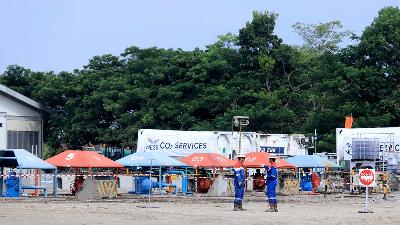
The government is aggressively marketing the business of storing carbon dioxide from other countries. This move raises concerns about potential leaks and greenwashing.

Reader’s letters from a non-formal teacher, locally known as a guru sertifikasi (certified teacher), who complains about not receiving allowance. Other readers raise concerns about the role of civil society and the CIA’s alleged involvement in a secret mission behind the failed coup attempt by Indonesian communists, known as the G-30-S PKI movement.

Minister of Higher Education, Science and Technology Satryo Soemantri Brodjonegoro explains BRIN’s position in the Prabowo government.
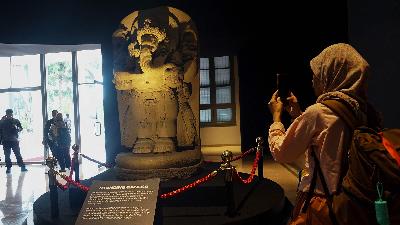
A collection of hundreds of cultural artifacts from the second phase of repatriation from the Netherlands is on display at the National Museum of Indonesia.
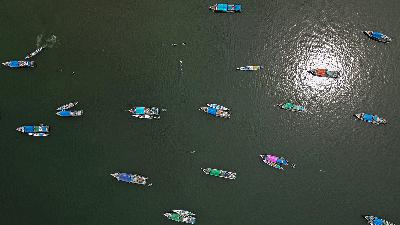
The family members of some ministers enter the fishery business. Other problems, such as the activity of illegal foreign vessels and the abuse of crew members, still prevail.

Explanations from State Secretary Minister Pratikno and Maritime Affairs and Fisheries Ministry on fishery business and the case of illegal ships in eastern Indonesia.
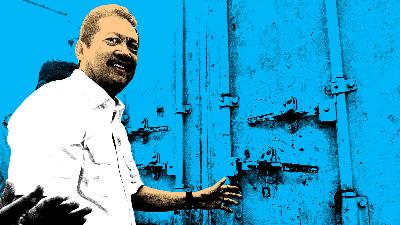
Minister Sakti Wahyu Trenggono revives a shutdown port. There is indication that the minister’s son is involved in the fisheries business.
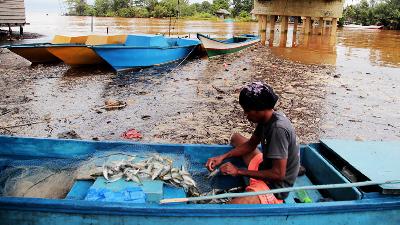
Indigenous people and villagers in Central Halmahera are facing clean water crisis. Community wells and river water are contaminated by nickel mining.
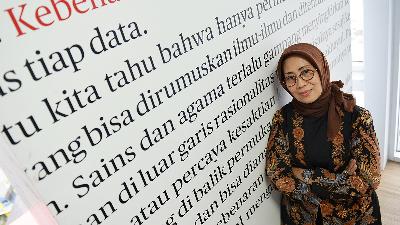
Press Council Chair Ninik Rahayu explains the Presidential Regulation on Publisher Rights for media business sustainability.
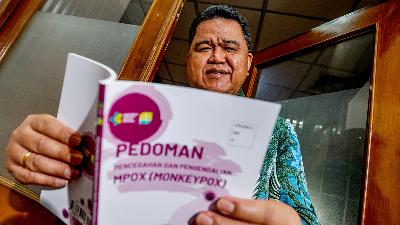
Balinese people refuse the lab-grown Wolbachia mosquitoes designed to prevent dengue fever outbreaks. Meanwhile, there is no evidence that the monkeypox spread is accelerating.
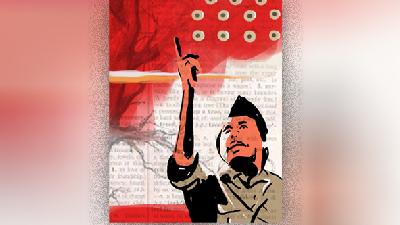
Thermopylae is a word that tells the story of human courage and resilience, even in defeat. Sekali berarti sudah itu mati (an instance of being meaningful, and then you die).
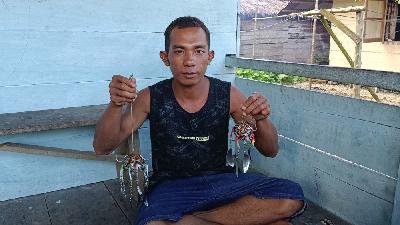
Awareness of how fishing practices can be harmful is improved in Mentawai Islands, but there are still obstacles.

The relationship between digital platforms and publishers needs to be regulated to make it fairer. These regulations need to be discussed in the open.

Investors are not very interested in developing geothermal electricity. Exploration is expensive, while prices depend on a single buyer.

Pertamina Geothermal Energy will offer 25 percent of its shares to the public. Foreign investors are ready to get in, and the geothermal project continues.
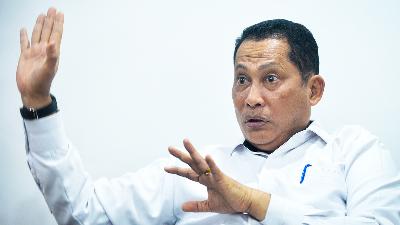
Bulog CEO Budi Waseso reveals that there were threats from the rice mafia. Because of them, market operations have not been effective in curbing the price of rice.
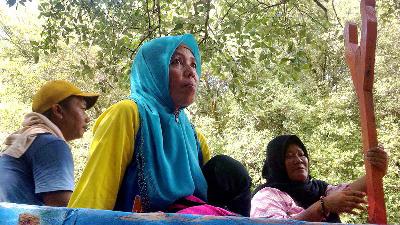
Hidayah Masnuah and the Puspita Bahari organization strive to uplift the lives of fisherwomen. She is active in advocacy on coastal issues.

Launched two years ago, the Transformational Teacher program is starting to show results in a number of schools. It needs to be more inclusive in order to prevent the appearance of elitism among teachers.
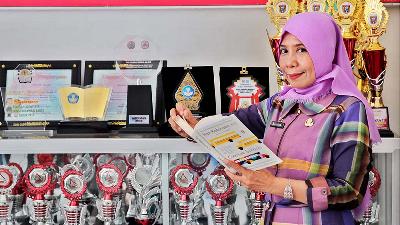
Erniwati, Principal of the State Elementary School 66 in Pekkabata, West Sulawesi, holds inspirational class events at her school. This participant in the Guru Penggerak program, known for her punctuality, makes many breakthroughs through her works.
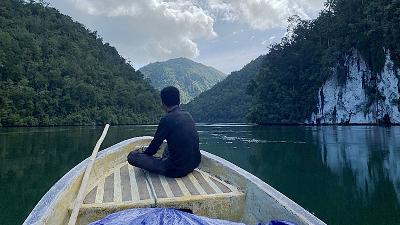
Many teachers do not attend schools in remote villages in Raja Ampat and other regencies in West Papua and Papua. Some community groups work to rescue primary education there.
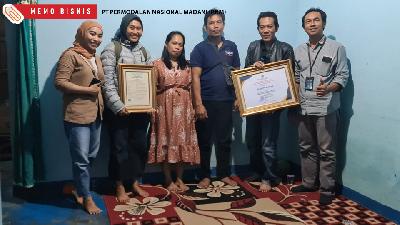
In addition to selling kinang, Siti, Farel, and her husband are busking around. #InfoTempo

There is another crisis of coal supplies for PLN as a result of regulations that are easy for businesses to find a way around. There is no need to establish a public service agency.

The government and the DPR should not be in a hurry to ratify the Mother and Child Welfare Bill. It needs further study for effective application.
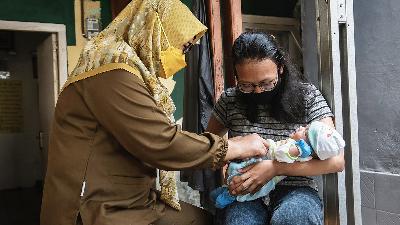
Summary of the week’s news, from controversy about the Bill on Mother and Child Welfare to the examination of former Trade Minister Muhammad Lutfi by the AGO in the case of crude palm oil export permit.
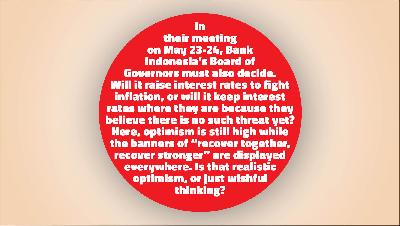
Amidst the optimism of recovery, there are several threats to the global economy. How about Indonesia?

Freedom is always fragile. People always need the will to fight for it, whether in Ancient Greece or in Mariupol in the 21st century.

Fenny Martha Dwivany became interested in studying bananas after a fruit seller offered her an overripe banana. She uses genetic engineering to regulate the ripening of bananas.
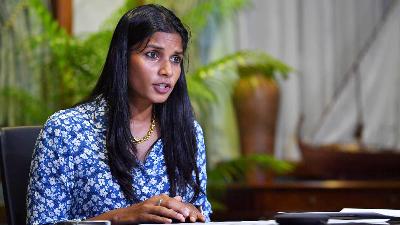
The Maldives Special Envoy for Climate Change Sabra Ibrahim Noordeen discusses how serious the impacts of climate change to her country that have 1,190 islands.

The plan to consolidate geothermal assets is being held up by corporate egoism within state-owned enterprises. The expansion of renewable energy to mitigate the climate crisis could be delayed.

The plan to merge state-owned geothermal energy assets is again held back by disagreements over valuation. Pertamina Geothermal is preparing to move forward on its own.
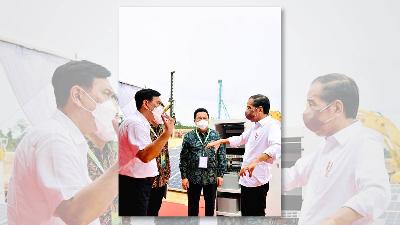
There is an aroma of collusion and nepotism hanging around the concession to develop the Indonesian Green Industrial Park in North Kalimantan. Luhut Pandjaitan and Boy Thohir are behind it.
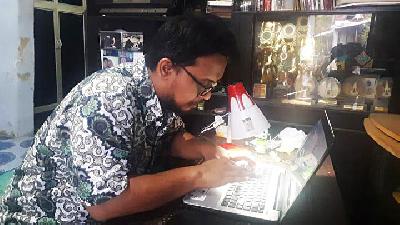
A committee for selecting civil servants in Central Java did not accept Muhammad Baihaqi to become a mathematics teacher because he is visually impaired. It was a clear case of discrimination.
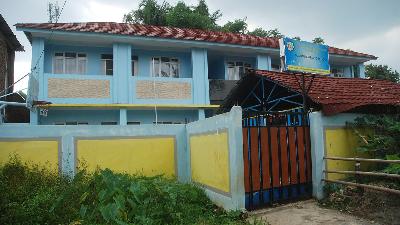
Herry Wirawan is suspected of committing sexual violence and exploiting more than a dozen female students, some of whom have given birth. There are suspicions his family was involved.
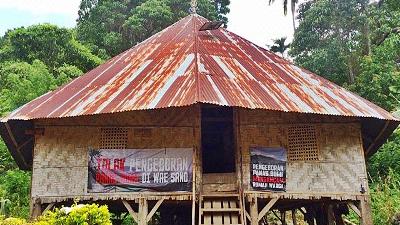
The customary community of Wae Seno at West Manggarai, East Nusa Tenggara, rejects a geothermal project. Their living space would be sacrificed for the project.

Dozens of hot mud ponds appeared in the land of the people in Flores, East Nusa Tenggara, where a geothermal power plant was constructed. People’s crops also decrease.
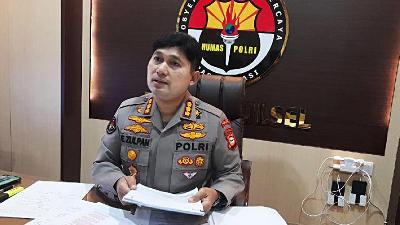
The South Sulawesi Regional Police assigns the Luwu Timur District Police to investigate the suspected sexual violence against three children. There is new evidence in the case.

It is believed that the budget for the distribution of rice from the social affairs ministry through a state-owned enterprise has been manipulated. There have been many irregularities since a partner company was appointed.

The government is planning an initial public offering of Pertamina Geothermal Energy (PGE). This is an effort to bring about better corporate governance of the energy business.

Big players in the energy sector are competing to develop the potentials of geothermal work areas. The stock exchange is among their sources for financing.
Tempo’s report on the management of state-owned enterprises in the energy sector is made possible by the support of the Judith Neilson Institute.
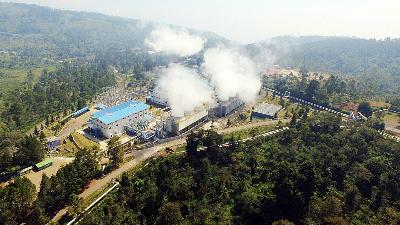
The state-owned enterprises ministry intends to merge PLN and Pertamina Geothermal Energy’s geothermal power plant assets. The plan is to expand first before making an IPO at the stock exchange.

Indonesian researcher Carina Citra Dewi Joe is involved in the Oxford-AstraZeneca Covid-19 vaccine research team. She is on the list of patent holders due to her involvement in developing the method for producing mass quantities of the vaccine.

Hengky Setiawan is nicknamed “The King of Vouchers” due to his success in selling mobile phone credit top-up vouchers. He is known for his tenacity and skill in establishing business relations.
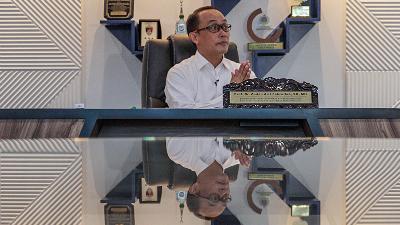
Following an investigation into the leak of personal data belonging to 279 million Indonesian citizens on May 20, Population and Civil Registration Director-General Zudan Arif Fakrulloh ascertained that it was not population data. As Indonesia’s Population and Civil Registration (Dukcapil) data is the world’s fourth largest big data after those of China, India and the United States, Zudan is constantly worried about the threat of hackers. Albeit Dukcapil’s system which is more sophisticated nowadays, Zudan admits that his agency’s infrastructure on the other hand is already out of date. To build a stronger system and upgrade the infrastructure, the home affairs ministry is planning to collect non-tax revenues from private companies that access Dukcapil data.
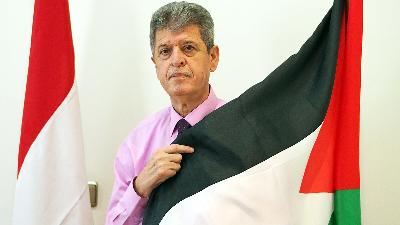
Palestinian Ambassador to Indonesia, Zuhair al-Shun, urges the international community to take concrete actions against Israel through economic or political blockade which he believes could pressure Israel. Al-Shun says that the ceasefire between Israel and Hamas is not a lasting resolution to bring an end to the conflict in Gaza adding that the United Nations has already passed many resolutions, among others Resolution 181 of 1947, to create free Palestine with East Jerusalem as its capital. He hopes that the United States’ new administration under President Joe Biden will take a fairer stance in the issue. Al-Shun also conveys the Palestinian authority’s appreciation towards political and humanitarian support given by the Indonesian government and its people and gives advice on how to properly funnel solidarity funds for the Palestinian people.

The internal conflict in the National Awakening Party (PKB) must be resolved democratically. There must be no government intervention.
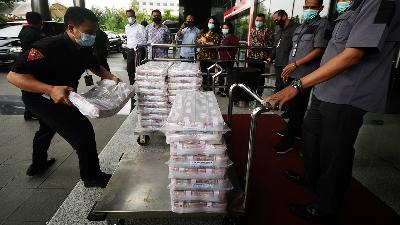
The KPK seized Rp52.3 billion in cash in relation with the lobster larvae export corruption case at the marine affairs and fisheries ministry. It is suspected that the money is fees extorted from the exporters.
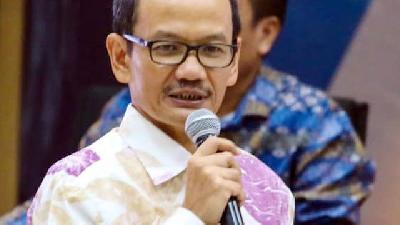
Higher Education Director-General Nizam explains the issue of honorary degrees granting and the ministry of education and culture’s stance.

The Job Creation Law changes several forestry and environmental laws. Some ‘inserted’ articles benefit forest encroachers.
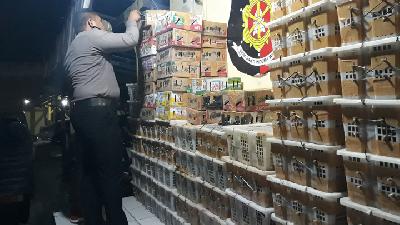
Bird catchers are using rat glue and birdsong recording to get their prey. They often encounter dangerous animals during their hunt.
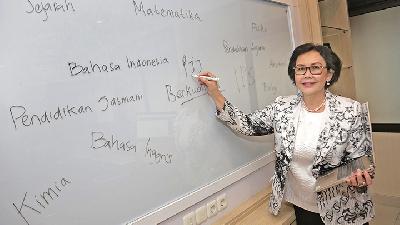
Education and Culture Minister Nadiem Makarim’s decision to implement distance learning system during the Covid-19 pandemic has opened a Pandora’s box of problems. Countless teachers particularly those in the regions have found themselves overwhelmed.

SOEs Minister Erick Thohir refuses PDI-P politician Adian Napitupulu’s recommendations for SOEs commissioner positions. Erick claims he has received numerous recommendations for commissioner candidates from other ministries and institutions. His brother, Boy Thohir, is believed to be involved in SOEs official appointments.
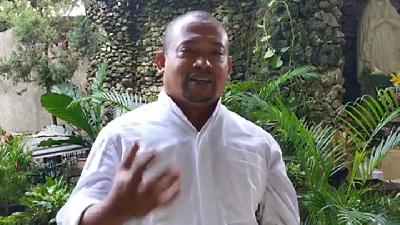
In early February, not long after taking the role of head priest at St. Herkulanus Parish in Depok, West Java, Yosep Sirilus Natet was faced with a case of sexual violence against altar boys. At first, there were two victims.
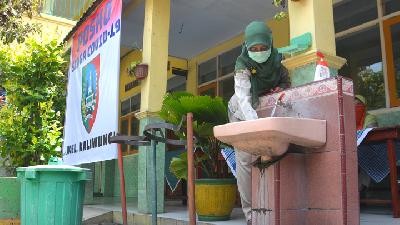
Schools will reopened under a mixed learning system. There are fears of new clusters of Covid-19 outbreaks.

Sri Tiawati was adamant to build a school for her tribe in Semeriot village. She was once embarrassed to have been a native of Dayak Punan.

For almost two decades, Indonesian students have been ranked low in the international index of student ability. The government needs to focus on improving the quality of teachers.
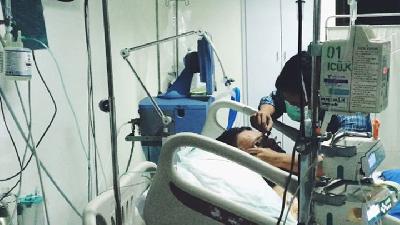
Terawan Agus Putranto’s ‘brain wash’ method is not always successful. There is the placebo effect to consider.
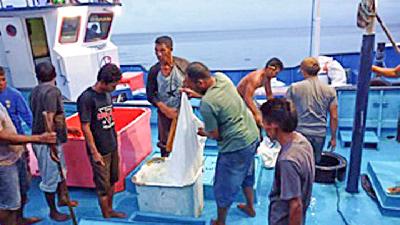
Many fishers in North Maluku are caught up in a net of rent seeker debt making it difficult for them to achieve prosperity. The local government initiated a program to help relieve them from their debt burden through several programs.
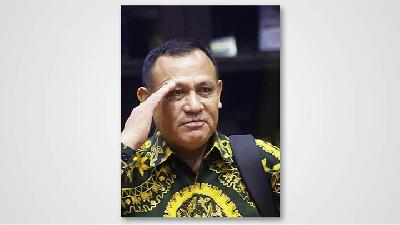
There is no other recourse: all elements of civil society need to move together to stand for the Corruption Eradication Commission (KPK).
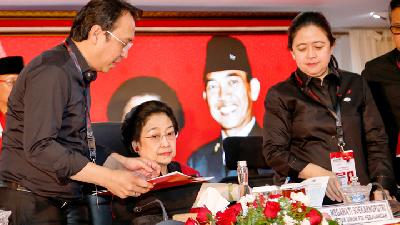
PDI-P’s Fifth Congress in Bali reconfirmed Megawati Sukarnoputri as general chairperson. It quelled the rumor of competition among her two children.
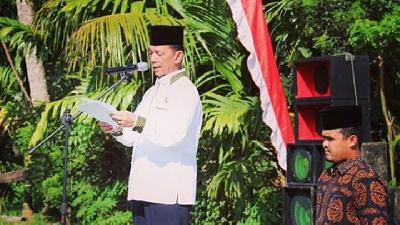
The development of the Batang Toru hydro power plant in South Tapanuli, North Sumatra, is partly due to the Pasaribu family. Permit processing went smoothly thanks to the Pasaribu brothers.
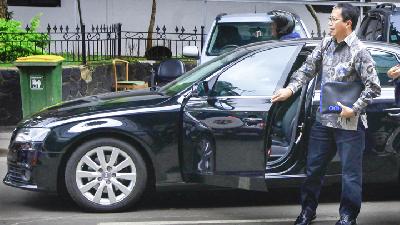
The acting General Chairman of the Indonesian Soccer Association (PSSI), Joko Driyono, becomes a suspect for obstructing the investigation into the soccer mafia case. The police are also investigating his suspected involvement in a match fixing scandal. There are indications of international bookies.

I often feel strangely disturbed when I hear the word ‘philosopher’. We know these creatures exist, but I have never been able to clearly identify them.

PPIM’s Clarifications of Intolerant Teachers Survey
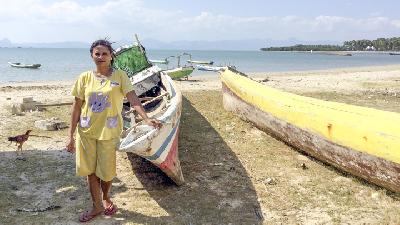
Women are often not recognized as fishers. They need information and access to various facilities, including assistance.
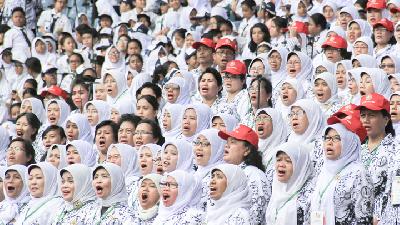
A research conducted by the Center for Islamic and Social Studies (PPIM) of Syarif Hidayatullah State Islamic University has indicated that the majority of Muslim teachers in Indonesia are intolerant of other religious adherents. Based on a PPIM survey of 2,237 teachers, those maintaining the intolerant view constituted 63.07 percent of respondents. “The research aims at examining the pluralist view and attitude of school and madrasah (Islamic school) teachers in Indonesia,” said PPIM Executive Director Saiful Usman last Tuesday.

*What, DPR building..! What are we doing here? **To become DPR members!
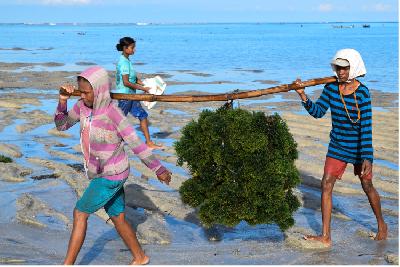
Multitudes of women are, in fact, involved in the fisheries sector’s production chain, from pre-production, processing, to marketing fish catch. But their participation is often underestimated and unappreciated: Women are simply seen as helpers. A number of organizations are working to empower fisherwomen through a variety of programs. In East Sumba, East Nusa Tenggara, for example, the Food and Agriculture Organization is teaching women seaweed farmers proper farming as well as food processing techniques. Meanwhile, Konsorsium Dian Tama is empowering fisherwomen in Kapuas Hulu, West Kalimantan, by providing training for creating fish products. To welcome the National Maritime Day next month, Tempo English reports.

Villagers in Kubu Raya, West Kalimantan, are working together to build toilets for disadvantaged families. Village governments are assisting by helping fund the work.

IN Indonesia, the public sphere has been dominated by men, with women set aside to the margins. This inequality in public participation has been exacerbated by women’s lack of capacity, another by-product of what has largely been a patriarchal sensibility. Now, many institutions are getting involved, including the non-profit Arika Mahina Foundation, which has set up field schools for women in several regions, including Ambon in Maluku. Meanwhile, the Female-Headed Households Foundation, or Pekka, has formed the Paradigta Academy in Aceh, where women are trained to speak out, take action to eradicate discrimination, and participate in development. Tempo English reports.

The Belu Regency has 400 pre-school teachers, most of whom are high-school graduates and housewives. Save the Children and Belu’s education office equip these teachers with pedagogy training.

There was hardly any enthusiasm in financial markets after S&P Global Ratings raised Indonesia to investment grade, two weeks ago. The market reacted indifferently; with some areas even trending negatively. This goes against many investors' expectations, who had hoped an investment grade from S&P will boost the value of their financial assets.

AFTER his inauguration as head of the Maritime Security Agency (Bakamla) on March 2016, Arie Soedewo expressed his goal to combat illegal fishing and other crimes at sea. "I'm preparing myself to be the bulldozer at sea for the President and Minister Susi," said the 1983 Naval Academy graduate.

After nine years as a migrant worker, Dwi Tantri is today much like a mother to Indonesian ship crews in Taiwan, who seek her out when they’re in trouble. Half of her income goes toward advocacy work.

Born into a poor family, Heni dreamed of becoming a teacher in her neighborhood. She helped build her village after she returned from working and studying overseas.

PRESIDENT Joko Widodo and his Sri Lankan counterpart Maithripala Sirisena oversaw the signing of a Memorandum of Understanding (MoU) in maritime issues and fisheries and a joint communique on illegal, unregulated and unreported (IUU) fishing by the Indonesian and Sri Lankan maritime and fisheries ministers. The President believes the MoU will strengthen cooperation in combating IUU fishing.

The voice of 54-year-old fisherman La Ode Minihasa was hoarse and heavy, given his lingering cold. He goes out fishing at sea for more than six hours each day, longer than most fishermen who usually go out to sea for anywhere between one to five hours a trip. Minihasa also patrols the sea off the customary village of Kadie Liya in Wakatobi, Southeast Sulawesi. "Bad weather makes fishing tougher," Minihasa, the father of 10, told Tempo.

Arif Budi Sulistyo, the younger brother-in-law of President Joko Widodo, is suspected of being involved in facilitating the resolution of tax problems of EK Prima Ekspor Indonesia. EK Prima country director, Ramapanicker Rajamohanan Nairpresently a defendant in bribery case involving a tax officialasked for Arif's help to take care of his company's tax issues.

LOW Kok Thye didn't think Suryo Tan would betray his trust. Thye, also known as Nick Low or Dr. Nick, director of Malaysia's Southern Keratong Plantation, said Suryo scammed him in the process of obtaining land use permit for an oil palm plantation in Paser Regency, East Kalimantan. "The guy is cunning," Low said. Nick told his story during an interview with Tempo reporters Anton Aprianto and Prihandoko in South Jakarta, two weeks ago.
How did you get to know Suryo Tan?
Our company ran into an abandoned land problem in late 2011. We didn't know how to take care of it. Raymond Wong, our corporate lawyer, said he knew a man who could help, by the name of Suryo Tan. We did a background check. There were red flagsbut for the past four to five years he was clean.
When did the two of you first meet?

Empowering Shrimp Farmers
Erna Leka is a shrimp farmer in Bumi Dipasena village, Lampung. She fights to get a fisherman's card, which would entitle her and fellow fisherwomen to healthcare and government assistance programs.
Juleha wakes up very early in the morning to perform household chores before inspecting the two 200-square-meter shrimp ponds in front of her house in the village of Bumi Dipasena, Tulang Bawang Regency, Lampung. After switching off the ponds' aerator devices, the 42-year-old feeds the shrimp.

SAIDAH could not be happier. A short video that she shot with a camera borrowed from a neighbor has brought her to Jakarta in October. She had never traveled by plane before, let alone visited the capital city.
The 24-year-old recalled how she used the loaned camera to film her friend, a fisherwoman named Nurlina. Saidah wanted to document Nurlina's daily activities, so she had to brace the sea off Sabangko Island in Pangkajene Regency, South Sulawesi, where they both live.

Deborah Gabinetti is quick, gregarious, and emotivean immediate presence as soon as she enters a room. Yet she gives the impression of someone who is used to listening and observing. She will stop in the middle of a story to check your reaction, is not afraid to let pauses linger, tilts her head at you when curious to know what your take is on a situation and persists until she receives an answer.
When Tempo called Balinale's hotline to inquire about the festival, it was Gabinetti who answered the call. "This is Deborah. The director of the festival. Yes, I'm picking up calls," she said, laughing heartily, when asked who was on the other end of the line.

Left-behind Children
The 2004 tsunami disaster and other conflicts in Aceh caused many children to lose their parents. SOS Children's Villages helps place them with new families.
IN front of his house, Wahyu was absorbed in a card game with Farhan, a friend of similar age. Once in a while, the seven-year-old shouted, "You lost!" Farhan would respond similarly at other moments. Inside the house, their foster mother Nurjannah and her older children were preparing lunch.
"Wahyu has been here for two and a half years," said Nurjannah when Tempo visited her home three weeks ago. The 35-year-old woman is the foster mother who takes care of Wahyu and his new 'siblings'. The family came together with the support of the SOS Children's Villages foundation. Headquartered in Austria, SOS Children in Aceh has a house at Lamreung, Greater Aceh Regency.

Chairman Agus Rahardjo was riveted by the list of US Navy defense equipment, complete with their budget details. The chairman's laptop was accessing the website of the US Navy Secretariat. "Everything that is secret here is very open over there," said Agus, who started his term leading the Corruption Eradication Commission (KPK) in January 2016, in an interview with Tempo last week.
Agus said open access to the US Navy budget details meant corruption on even the smallest item would be noticed. Likewise, he urged citizens to serve as an extension of the KPK to ensure that not a dime of state money goes to corrupt pockets. "Every Indonesian must take part in monitoring," he said. The day before, he spoke with lawmakers at the House of Representatives (DPR) on ensuring the clean use of the state budget.

The time given to investigate the claims of drug lord Freddy Budiman that he channeled money to senior police officers was too short. National Police Chief Gen. Tito Karnavian assigned only one month to look into this serious and disturbing allegations of a drug kingpin prior to his execution. The team consisting of independent members was terminated around mid-September, just as it began to uncover the money trail to a number of police officers.
The police chief can actually do much in the effort to seek the truth. He could extend the investigation time, or he could form a task force to follow up on the findings of the first team. He could also use the momentum to clean house. After all, rumors have been rampant that some members of the police forcelike those in other law enforcement agencieswere in or behind the drug businesses.

The state must not show any sign of weakness in addressing land and forest arsonists. There must be better coordination among the authorities.

The indictment of Southeast Sulawesi Governor Nur Alam as a corruption suspect by the Corruption Eradication Commission (KPK) has triggered an old question. Why was this case, previously handled by the Attorney-General's Office (AGO), allowed to go nowhere for two years before the KPK took over?
In September 2014, Nur Alam's name appeared alongside those of nine other regional chief executives because they all had bank accounts containing at least Rp1 trillionan extraordinary amount, given their modest official salaries. The Financial Transaction Reporting and Analysis Center (PPATK) twice sent the results of its investigations and analyses to the AGO. Among those findings were payments into Nur Alam's account totaling US$4.5 million from a mining company in Hong Kong. Some took the form of insurance policies and transfers from other accounts. The sum of almost Rp50 trillionreportedly returned to the state after the PPATK reportis believed to be linked to the business permit granted by the governor to Anugrah Harisma Barakah, a nickel mining company.

Never in history has there been an economic phenomenon this confusing. In Europe and Japan, negative interest rates are in effect. The world has turned upside down, with creditors 'paying' interest to borrowers. This absurd phenomenon breaks down all theory and makes mathematical formulas powerless.
Its size is nothing to scoff at. There is a total of US$13 trillion in government bonds with negative interest. This is the result of the quantitative easing policies pursued by many central banks, effectively mass-printing money to buy government bonds. The hope was to stimulate the economy with the government spending the money from the proceeds.

THE National Narcotics Agency (BNN)together with the Indonesian Military (TNI) and National Policereported Coordinator for Commission for Missing Persons and the Victims of Violence (Kontras) coordinator Haris Azhar to the police. Those three institutions objected to what Haris wrote about the personal testimony of Freddy Budiman. This death row inmate allegedly spoke about the suspected involvement of the police, the military and BNN officials in the illegal narcotics business. The strong reaction of those three institutions has drawn criticism from many circles. However, according to BNN chief Com. Gen. Budi Waseso, questioning and verification will be expedited to check if Freddy's 'admission' is true or not. "The President ordered us to quickly follow up on that information," Budi Waseso told Tempo reporter Linda Trianita at the BNN office last week.
Why did BNN rush to report Haris Azhar to the police?
Because this matter had already been published, the police have the authority to prove its truthfulness. To handle the case, the police must have the grounds to act. That police report will be the basis for summoning Haris. This does not mean that Haris can become a suspect. This is for the legal process. If there is no report, the police cannot summon him.
Three institutions agreed to file that police report?
No. We did not meet. I gave the order to make a report to the police for the purpose of expediting verification. The national police and the TNI also reported it due to an interest in verifying the matter. This happened concurrently, (although) it was reported that it was a joint decision. Accordingly, a two-star TNI general protected Freddy, that a certain police officer received Rp90 billion. BNN was also mentioned. We were surprised. This is dirty. We must clean it up.

SINCE September last year, the government has issued 12 economic policy packages aimed at attracting investments and accelerating growth. However, there are hurdles making the policies difficult to implement.
"It will be good if we can survive," Coordinating Minister for the Economy Darmin Nasution said in an interview at his office on June 29. To Tempo reporters Agus Supriyanto, Akbar Tri Kurniawan, Ayu Prima Sandi, Ali Nur Hidayat and Gustidha Budiartie, the former Bank Indonesia governor spoke about problems hampering the effectiveness of deregulations.

Rudi Kurniawan was exhausted. The helmsman had already spent the day lugging the Roby 152 barge on his tugboat, the Charles 001. That sweltering morning on June 20, the clock showed 11am Philippines time. While occasionally checking his coordinates, Rudi deftly navigated through the waterway.
Tired and sleepy, he was surprised to see two strange boats approach the Charles. Speaking to Tempo at Balikpapan's Semayang Port on June 25, Rudi said the incident occurred in the waters of Jolo, a region in southern Philippines. The two were returning to Indonesia after having left Cagayan de Oro Port, Mindanao on June 18.

Last week, the government announced this year's first-quarter growth rate reached 4.92 percent, slightly higher than the 4.73 percent growth for the same period last year. Earlier, April inflation, year-on-year, was reported to drop to 3.60 percent, still comfortably within Bank Indonesia's inflation target range. Also, the rupiah remained stable at Rp13,300 per US dollar, just slightly weaker than previous week's Rp13.100 per US dollar level.
In addition, a team from Standard & Poor's (S&P) recently met with the government, which points to a possible rise in Indonesia's sovereign ratings, which for quite some time have languished at the BB+ level, one notch below investment grade. So far, S&P is the only major global rating agency that has not issued Indonesia an investment grade, as Moody's and Fitch have done.

Forty-five documents of great interest were found among the 11.5 million documents of the Panama Papers. If they were printed, they would not be more than half a ream of paper. They are all connected with the activities of an offshore company owned by businessman Edi Yosfi.
There are at least four companies in the Panama Papers that are connected to Edi: Saxenburg Enterprises, Palomino Energy Ketapang, Hollingsworth Group and Kingswood Capital. These four companies were registered by the law firm Mossack Fonseca at the same address: Akara Building, Tortola, British Virgin Islands.

As the marine affairs and fisheries minister, it is Susi Pudjiastuti's task to ensure that Indonesian fishing boats are hosts in their own country. After she was sworn in by President Joko Widodo last year, she immediately set out to immobilize thousands of foreign vessels with questionable licenses.
When she took on her job, Susi faced a mountain of problems which had been neglected for years. Among them was rampant poaching and the abuse of tonnage capacity, which unscrupulous business people seized on to take advantage of subsidized diesel fuel prices and to avoid paying taxes.

BOLD initiatives by Marine Affairs and Fisheries Minister Susi Pudjiastuti to combat illegal fishing have sparked protests. Banning the practice of transshipment at sea and putting a stop to licenses for ex-foreign vessels have upset businessmen and fishermen alike. Vice President Jusuf Kalla said that Susi's measures had left the fishing industry in Ambon and Bitung 'gasping for air'. But Susi retorted, "Cold storage facilities in Bitung had long been empty," when Tempo met her on Monday.

The pursuit of the Chinese-flagged fishing boat Kway Fey two weeks ago in the Natuna Sea has turned into a diplomatic incident. And tensions remain high.
There would have not been a problem if the armed Chinese coastguard vessel Number 3184 had not entered the waters of Indonesia's exclusive economic zone. Matters became more serious when this vessel rammed the Kway Fey to prevent the crew of the Indonesian ship Hiu Macan 11 from detaining the crew of the illegal boat. The damaged Kway Fey was eventually towed away by the Chinese coastguard vessel.

A week after the Organisation of Islamic Cooperation (OIC) held its summit in Jakarta in early March, Foreign Minister Retno Lestari Priansari Marsudi, 53, flew to Amman, the capital of Jordan. Her mission was to swear in Maha Abu-Shusheh, Indonesia's honorary consul for Palestine whom President Joko Widodo had appointed at the OIC summit. The honorary consul will reside in Ramallah, Palestine.
Minister Retno had planned to enter Palestine from Jordan by helicopter on March 13. At the last minute, however, the Israeli government withdrew its clearance for the Indonesian delegation to fly over its territory. "That's fine. No problem," conceded Retno.

Low tax uptake from the fisheries sector has prompted Marine Affairs and Fisheries Minister Susi Pudjiastuti to launch another bold initiative. The action includes a review of vessel weights and an increase in fishery-production tax rates for bigger ships. The move is meant to make fishing firms' contribution to state coffers proportional to their incomes.
As a result of the policy, several companies have lodged protests with the House of Representatives (DPR). Susi, however, remains unfazed. At the ministerial housing complex in Widya Chandra, South Jakarta, last week, Susi said she would not hesitate to crack down on shady business practices and the players behind them.

THE People's Coalition for Fisheries Justice (Kiara) has formed 14 fisherwomen's groups in several areas around the country. Besides enabling Indonesian fisherwomen a sense of economic self-reliance, the program is aimed at empowering them.
Independent journalism needs public support. By subscribing to Tempo, you will contribute to our ongoing efforts to produce accurate, in-depth and reliable information. We believe that you and everyone else can make all the right decisions if you receive correct and complete information. For this reason, since its establishment on March 6, 1971, Tempo has been and will always be committed to hard-hitting investigative journalism. For the public and the Republic.